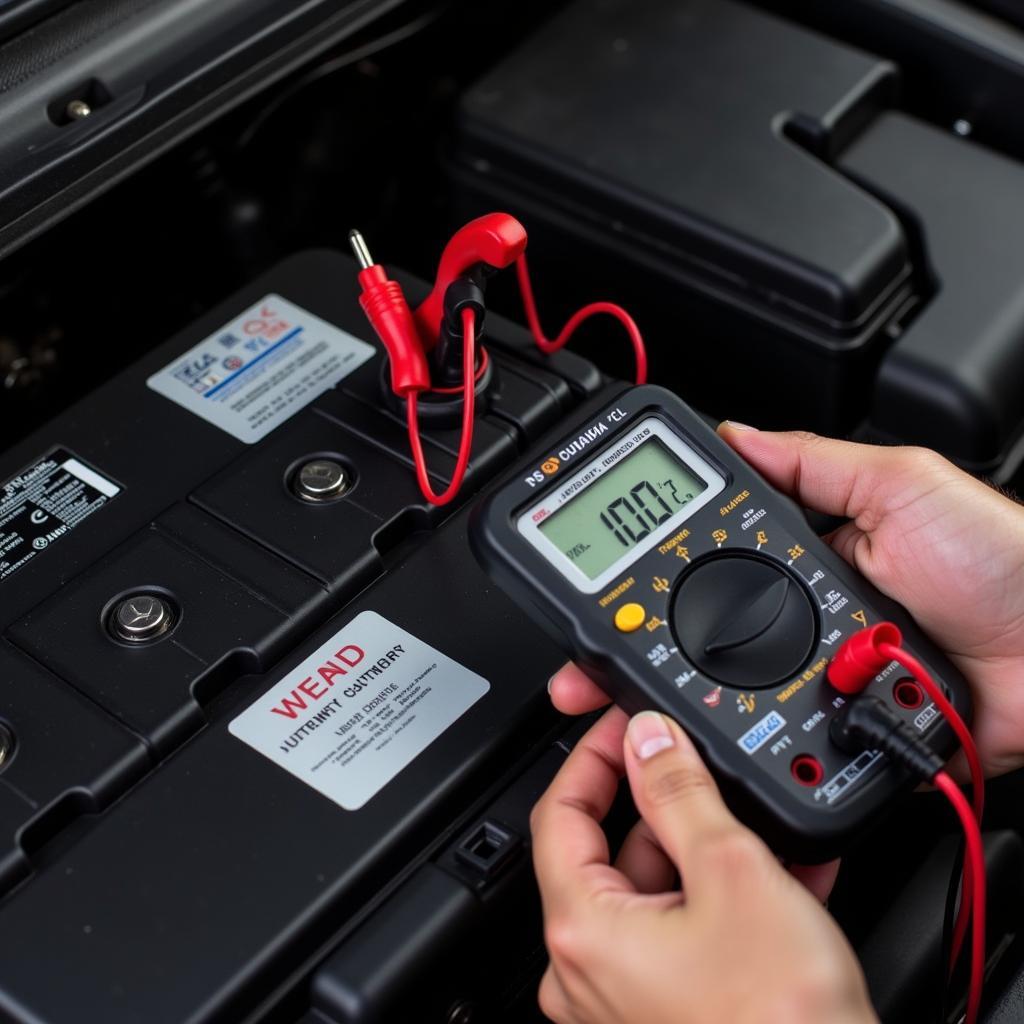A glowing brake warning light on your 1997 Honda Accord’s dashboard can be a cause for concern. It usually indicates a problem with your braking system that requires immediate attention. This article will explore common causes of a 1997 Honda Accord brake warning light and provide troubleshooting tips and solutions.
Understanding Your Honda Accord’s Brake Warning Light System
The brake warning light is part of your vehicle’s safety system, designed to alert you to potential issues within the braking system. When the light illuminates, it could signal several problems, ranging from a simple issue like low brake fluid to more complex problems like a malfunctioning ABS system.
Common Causes of a 1997 Honda Accord Brake Warning Light
Here are some of the most frequent reasons why your Honda Accord’s brake warning light might be on:
1. Low Brake Fluid
One of the most common and easily fixable causes is low brake fluid. Brake fluid is essential for transmitting force from the brake pedal to the wheels, allowing your car to stop. Over time, brake pads wear down, and the fluid level naturally decreases. If it drops below a certain point, the brake warning light will illuminate.
Solution: Check your brake fluid level. If it’s low, carefully top it off with the correct type of DOT 3 or DOT 4 brake fluid specified in your owner’s manual.
2. Worn Brake Pads
Brake pads are designed to wear down over time. When they become too thin, a sensor within the brake pad will trigger the warning light on your dashboard.
Solution: Inspect your brake pads for wear. If they appear thin or you hear a grinding sound when braking, it’s time to replace them.
3. Faulty Brake Caliper
The brake caliper houses the pistons that push the brake pads against the rotors to slow or stop the vehicle. A sticking or seized caliper can cause uneven brake pad wear, pulling the vehicle to one side when braking, and trigger the brake warning light.
Solution: Diagnosing a faulty brake caliper can be complex and may require a mechanic’s expertise. If you suspect a caliper issue, it’s best to take your Honda Accord to a qualified mechanic for inspection and repair.
4. ABS System Malfunction
Your Honda Accord is equipped with an Anti-lock Braking System (ABS). If the ABS module or a wheel speed sensor malfunctions, it can trigger the brake warning light.
Solution: Troubleshooting ABS issues can be challenging without specialized diagnostic tools. It’s advisable to consult a qualified mechanic who can read the ABS fault codes and accurately diagnose the issue.
What to Do When Your Brake Warning Light Comes On
If your brake warning light comes on, it’s crucial not to ignore it. Pull over to a safe location as soon as possible and assess the situation. If you suspect a brake fluid leak or experience braking difficulties, do not attempt to drive further. Call for a tow truck to transport your vehicle to a qualified mechanic.
“Ignoring a brake warning light is incredibly risky,” advises John Miller, a certified automotive technician with over 20 years of experience. “Your brakes are your vehicle’s most crucial safety feature, and any issues should be addressed immediately by a professional.”
Conclusion
Addressing a brake warning light in your 1997 Honda Accord promptly is vital for your safety and the longevity of your vehicle. While some causes might be simple fixes, others require the expertise of a qualified mechanic. By understanding the potential issues and taking appropriate action, you can ensure your Honda Accord continues to provide a safe and reliable driving experience.

